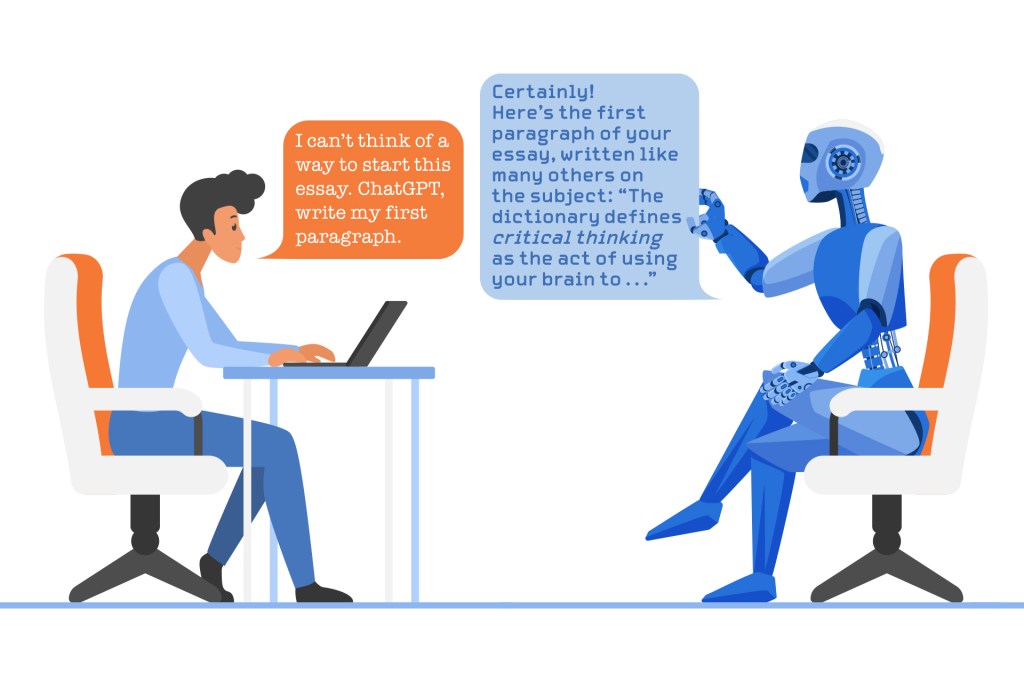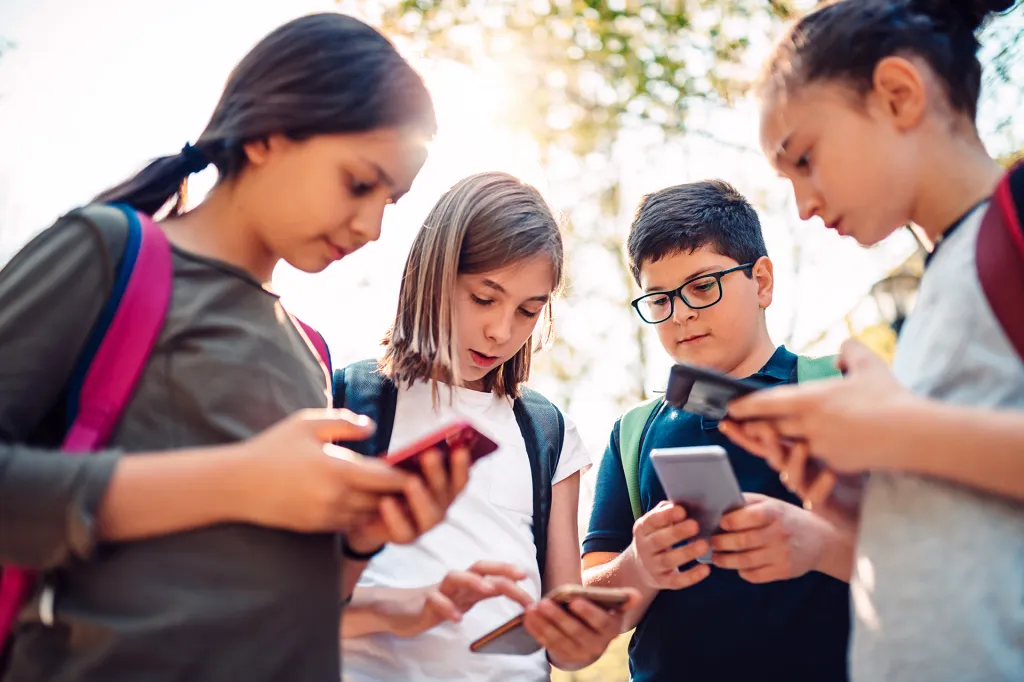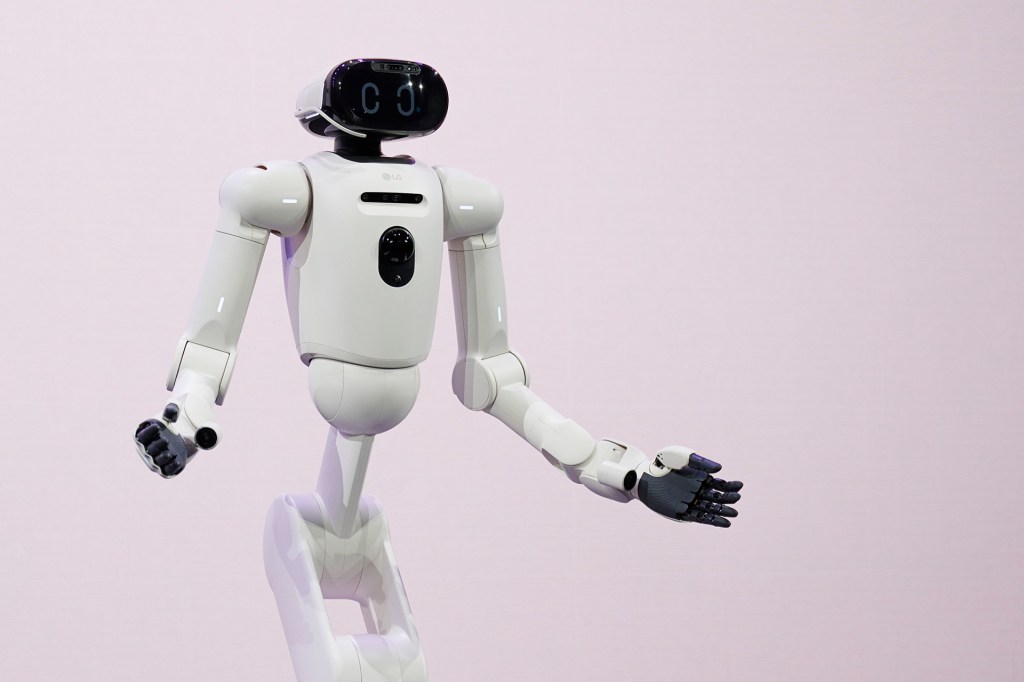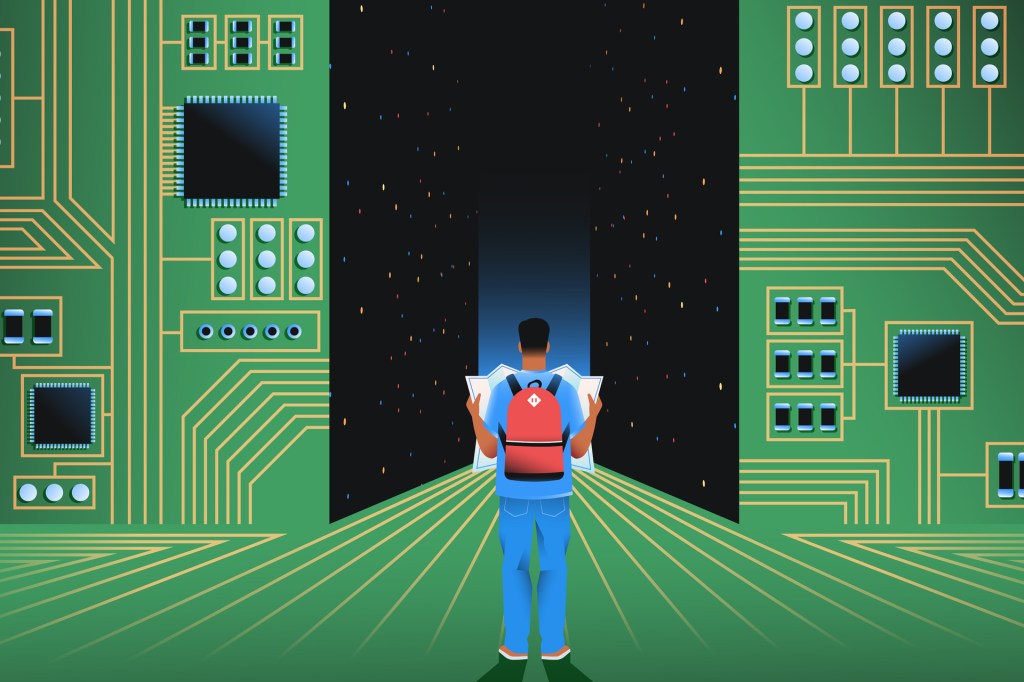Brains vs. Bots

Do students harm their ability to think for themselves by using ChatGPT for schoolwork? A study at the Massachusetts Institute of Technology, in Cambridge, says yes.
Researchers divided 54 adults into three groups. Each person was asked to write several essays. People in the first group used ChatGPT. People in the second group used Google. And people in the last group used only their minds.
The researchers used a device called an EEG to monitor the subjects’ brains. Of the three groups, ChatGPT users had the least brain activity. They showed decreased brain activity with each essay. And they remembered little of what they wrote.
The study was small. But researcher Nataliya Kosmyna felt it was important to release the results. She worries that AI tools will be increasingly used for school. “That would be absolutely bad and detrimental detrimental damaging (adjective) ,” she says. “Developing brains are at the highest risk.”
Put to the Test
Kosmyna wanted to explore the impact of AI on schoolwork. So she and her team gave subjects prompts. People in the ChatGPT group delivered similar essays. Their essays lacked original ideas. They also relied on the same phrases. Two English teachers who read the essays called them “soulless.”
Kosmyna says education on how we use AI is critical. So is “promoting the fact that your brain does need to develop in a more analog analog not digital or computerized (adjective) way,” she says.













